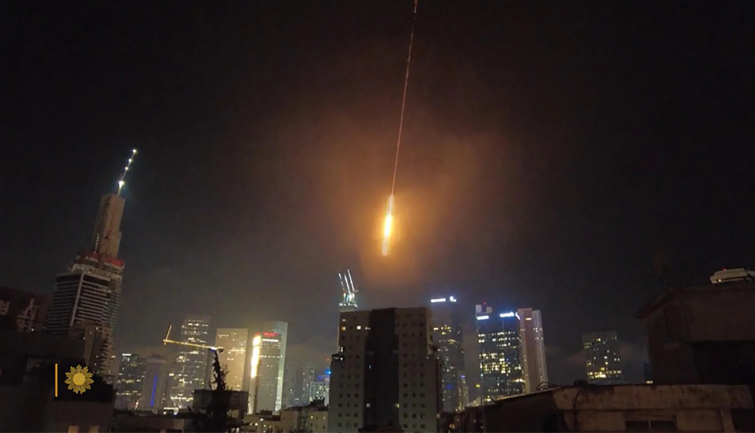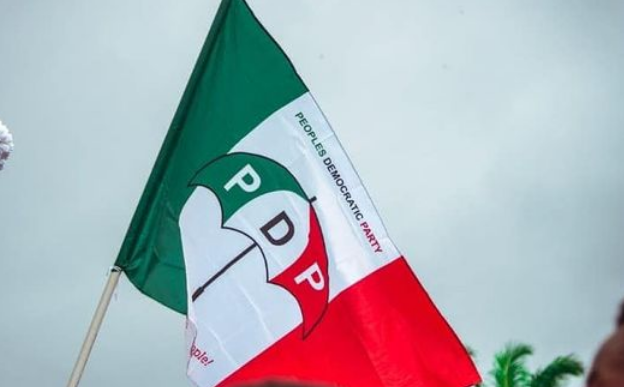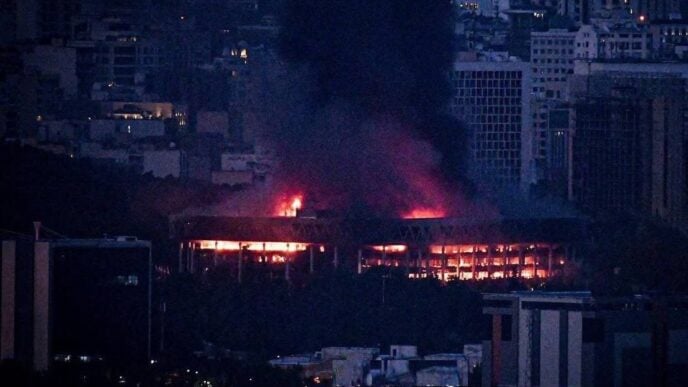In the years leading to the ongoing Israel-Iran war, Iranian officials repeatedly dismissed the idea that Israel had the capability to strike Iran militarily – a posture that now looks like a dangerous case of overconfidence. As recently as February and April 2025, top Iranian government officials scoffed at the notion of Israeli military might.
In mid-February, Iran’s foreign ministry spokesperson Esmaeil Baghaei declared during a weekly press briefing, “When it comes to a country like Iran, they cannot do a damn thing.” His comment referred to both Israeli and U.S. threats over Iran’s nuclear ambitions.
Then, in April, Iran’s foreign minister, Abbas Araghchi, doubled down during an interview, saying: “Israel has never been capable, is not capable now, and will not be capable in the future of carrying out a military operation against Iran, not even with U.S. support.”
These statements, intended to project strength and confidence, backfired.
Advertisement
On June 12, 2025, Israel launched a coordinated and highly effective military strike on several Iranian nuclear and military installations in Isfahan, Natanz, and western Tehran. According to media reports, over 10 top military personnel were killed in the strike, and at least 17 military facilities and suspected nuclear development sites were also reportedly damaged.
This conflict, now in its fifth day, has seen both countries exchange missile fire, disrupting civilian life and heightening tensions across the Middle East. Oil prices surged by 12% in the first 24 hours after the strike, with Brent crude trading at $101 per barrel.
Media reports are saying that Iran – through backchannels – wants an end to the war, and has requested the United States intervene and extract a ceasefire agreement from Israel.
Advertisement
Beyond the geopolitical and humanitarian implications, the Israel-Iran conflict offers important crisis management lessons for politicians and businesses. Here are six of them:
1. Avoid overconfidence
Projecting confidence is good; projecting invincibility is dangerous. Iran’s blanket dismissal of Israeli capability to carry out a military operation against it, created unrealistic public expectations. When Israel did strike – and successfully – Iran’s credibility suffered.
In the business world, this mirrors a CEO boasting to shareholders that, “Our systems are unhackable,” only for the company to suffer a cyberattack days later.
Advertisement
Always leave room for uncertainty: “We are confident in our defenses, but remain vigilant to emerging risks.”
2. Anticipate the unexpected
Iran miscalculated. It assumed Israel wouldn’t risk escalation – especially with the U.S. currently dealing with its own domestic issues such as the ‘No Kings’ protest, and global economic concerns of a war between both countries. But surprise is a powerful strategic tool.
Business leaders and politicians must prepare for unlikely but impactful threats – no matter how unrealistic those threats might be at first. Scenario planning, simulations, and stress tests are no longer luxuries; they’re essential tools in navigating today’s unpredictable world.
Advertisement
3. Speed of response Is critical
Iran waited several hours before acknowledging the attack. That silence allowed speculation, misinformation, and panic to spread.
Advertisement
In crisis communication, time is reputation. Whether it’s a social media backlash, executive or political scandal, or a military strike, having pre-drafted holding statements and a trained spokesperson ready to deploy within minutes can make a decisive difference.
4. Message alignment matters
Advertisement
Beyond the speed of response, aligning your message is also key. In the hours after the strike, conflicting reports emerged from Iranian media, military, and political offices. Some denied damage, others vowed retaliation, while state TV oscillated between silence and defiance.
This is a classic failure in internal coordination – with no central team coordinating messaging. Politicians and corporate leaders must establish a centralized crisis team empowered to control messaging across all departments, ensuring consistency and accuracy.
Advertisement
5. Be first to control the narrative
Control the narrative or watch others do it for you. By the time Iran responded, the media had already shaped the narrative: Iran was caught off-guard. Israel’s Prime Minister gave a press briefing just three hours after the strike, framing the attack as a “defensive necessity.”
As a politician or business leader, you must understand that whoever speaks first often shapes how a crisis is remembered. Use owned media – websites, newsletters, social platforms – to control your narrative, instead of letting competitors or enemies do it for you.
6. There’s strength in preparation
Iran, with one of the largest standing armies in the Middle East and a multi-layered defense network, underestimated the threat – and overestimated its deterrence.
In leadership, strength comes not just from resources but from preparedness. This applies equally to businesses, and governments. Hope is not a strategy; readiness is.
Conclusion
Crisis is the truest test of leadership. Whether you’re a politician navigating scandal or a business leader responding to market shocks, your words, actions, and response time matter. Iran’s missteps – from overconfidence to delayed response – serve as a cautionary tale.
In today’s world, the real power lies not just in having stockpiles of missiles or money, but the agility to respond to a crisis, and the wisdom to communicate with clarity.
Maduekwe is the founder of Discussing Africa Media. He can be reached at [email protected]
Views expressed by contributors are strictly personal and not of TheCable.












